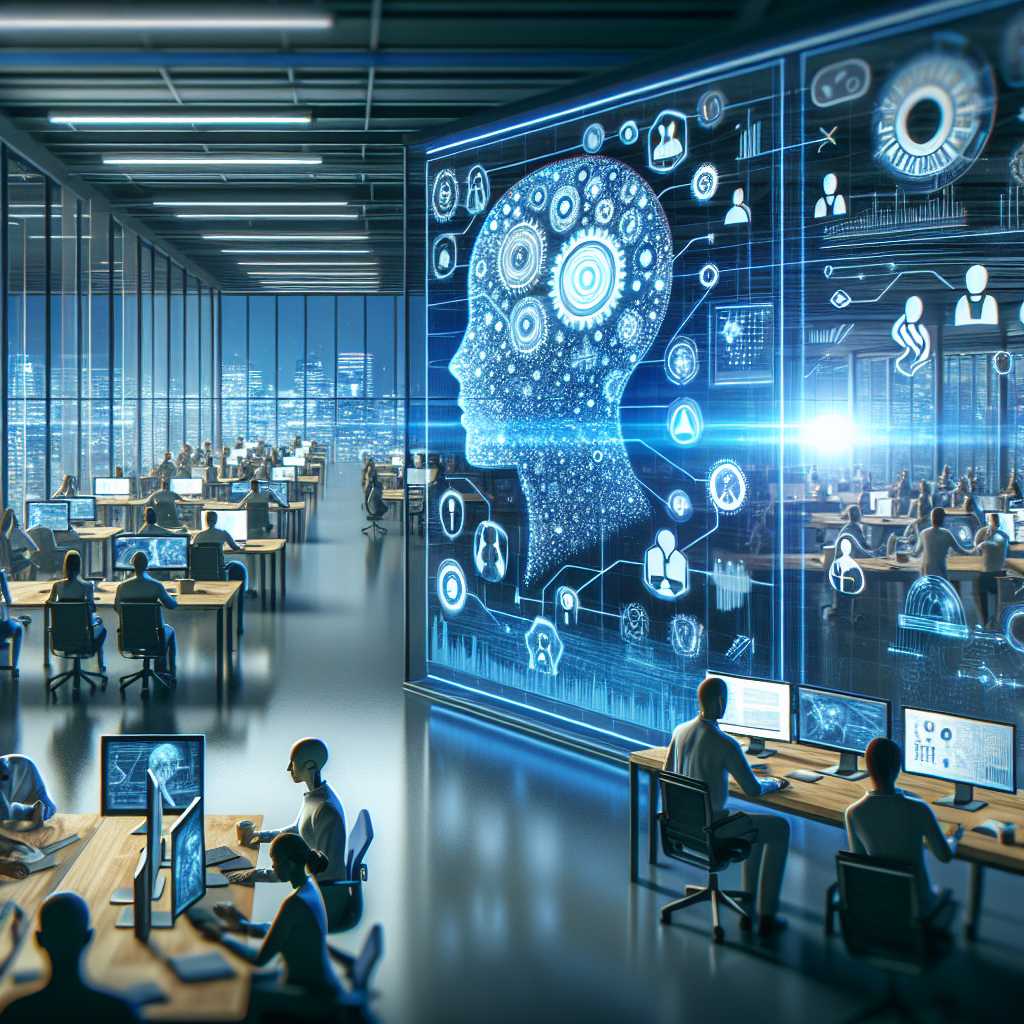Artificial General Intelligence (AGI) is a topic that has been gaining more and more attention in recent years. AGI refers to a type of artificial intelligence that can understand, learn, and apply knowledge in a way that is indistinguishable from human intelligence. While current AI technologies are designed for specific tasks or domains, AGI aims to replicate the broad cognitive abilities of human beings.
As the development of AGI progresses, there are concerns about how it will impact the future of work. Will AGI replace human workers in many industries? Will it create new job opportunities? How will it change the way we work and interact with technology? In this article, we will explore these questions and more to better understand the potential impact of AGI on jobs and industries.
The Impact of AGI on Jobs and Industries
The potential impact of AGI on jobs and industries is a topic of much debate and speculation. Some believe that AGI will lead to widespread job displacement, while others argue that it will create new opportunities and improve productivity. Here are some ways AGI could impact the future of work:
1. Job Displacement: One of the biggest concerns about AGI is the potential for widespread job displacement. As AGI becomes more advanced, it could automate tasks that are currently performed by humans, leading to job losses in many industries. For example, AGI could replace customer service representatives, truck drivers, and even some healthcare professionals.
2. New Job Opportunities: While AGI may lead to job displacement in some industries, it could also create new job opportunities in others. For example, as AGI automates routine tasks, humans may be able to focus on more creative and complex work. Additionally, the development and maintenance of AGI systems will require skilled workers in fields such as data science, machine learning, and software engineering.
3. Increased Productivity: AGI has the potential to greatly increase productivity in many industries. By automating routine tasks, AGI could free up human workers to focus on higher-level tasks that require creativity and critical thinking. This could lead to greater efficiency and innovation in the workplace.
4. Changes in Workforce Skills: As AGI becomes more prevalent in the workplace, there will be a growing demand for workers with skills in data science, machine learning, and other technical fields. Workers will need to adapt to new technologies and learn how to work alongside AGI systems. This could require retraining and upskilling programs to ensure that workers are prepared for the future of work.
5. Ethical and Social Implications: The development of AGI raises a number of ethical and social questions. For example, who will be responsible for the decisions made by AGI systems? How will AGI impact income inequality and job security? These are important questions that will need to be addressed as AGI technologies continue to advance.
Frequently Asked Questions about AGI and the Future of Work
Q: Will AGI replace all human workers?
A: While AGI has the potential to automate many tasks currently performed by humans, it is unlikely to completely replace all human workers. There will still be a need for human creativity, critical thinking, and emotional intelligence in many industries.
Q: How can workers prepare for the impact of AGI on the future of work?
A: Workers can prepare for the impact of AGI by developing skills in data science, machine learning, and other technical fields. Additionally, workers should be open to learning new technologies and adapting to changes in the workplace.
Q: What role will governments and policymakers play in shaping the future of work with AGI?
A: Governments and policymakers will play a crucial role in shaping the future of work with AGI. They will need to create policies and regulations that protect workers’ rights, ensure fair distribution of wealth, and address ethical concerns related to AGI technologies.
Q: How will AGI impact different industries?
A: AGI could impact different industries in various ways. For example, industries that rely heavily on routine tasks, such as manufacturing and customer service, may see job displacement due to AGI automation. On the other hand, industries that require creativity and critical thinking, such as healthcare and education, may see new job opportunities emerge.
Q: What are the potential benefits of AGI for the future of work?
A: AGI has the potential to greatly increase productivity, improve efficiency, and drive innovation in many industries. By automating routine tasks, AGI could free up human workers to focus on higher-level tasks that require creativity and critical thinking.
In conclusion, AGI has the potential to greatly impact the future of work in a variety of ways. While there are concerns about job displacement and ethical implications, there are also opportunities for increased productivity and innovation. It is important for workers, businesses, and policymakers to prepare for the changes that AGI will bring and to ensure that the benefits of this technology are realized in a fair and equitable manner.

